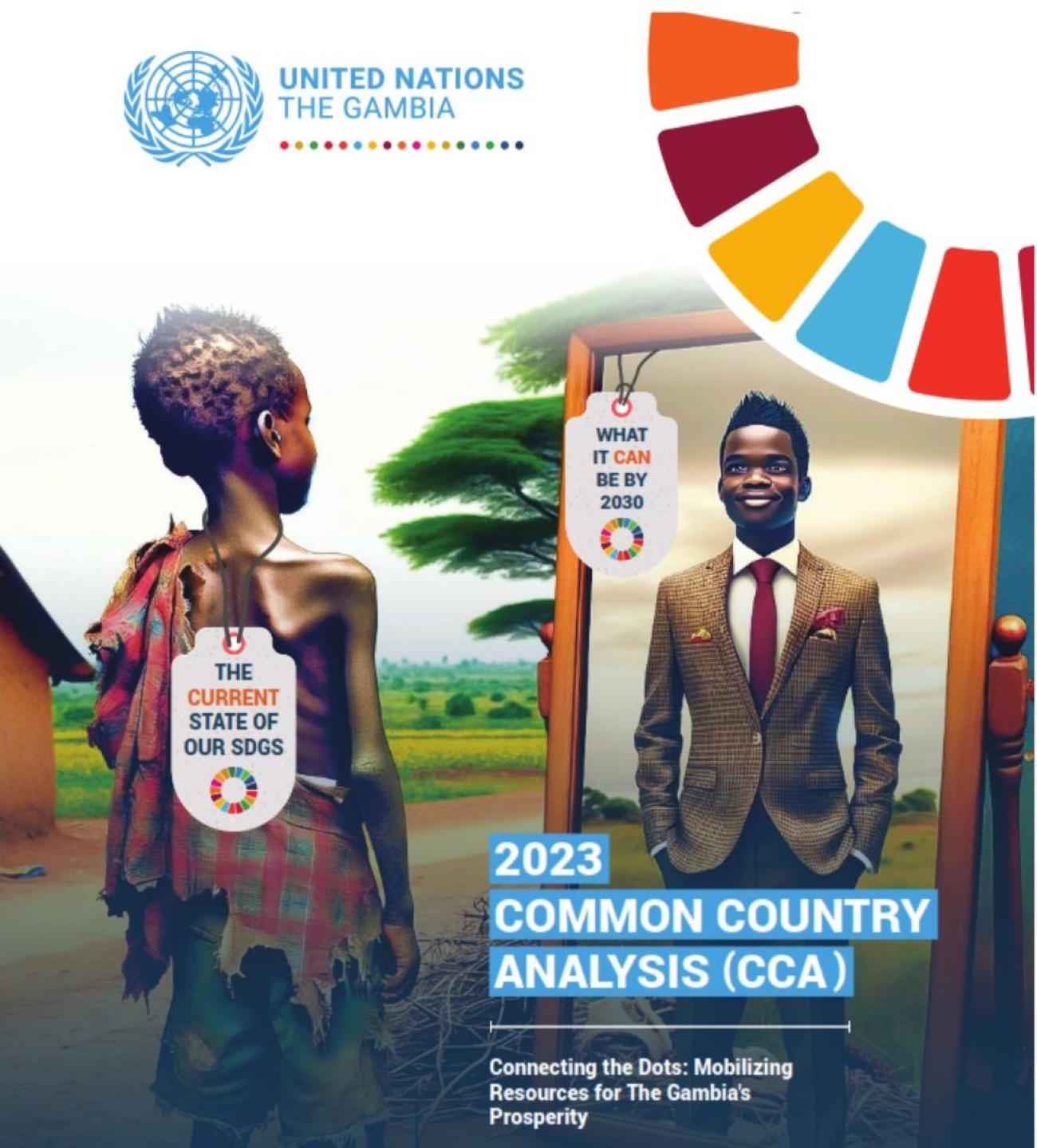Fatou, a smallholder farmer in the Central River Region of The Gambia, faces multiple challenges on her small plot of land. Her yields are low due to poor soil quality and lack of access to quality inputs. She lacks knowledge of climate-smart agricultural practices that could help her adapt to changing weather patterns. She also struggles to find reliable markets for her produce, often selling at low prices to middlemen. And she is unaware of the nutritional value of different crops and how to incorporate them into her family’s diet.
Fatou’s story is not unique. Across The Gambia, smallholder farmers are grappling with the complex challenges of sustainably producing nutritious food while ensuring a decent livelihood. Fragmented policies, limited resources, and a changing climate all contribute to a food system that often works against, rather than for, the people who feed the nation.
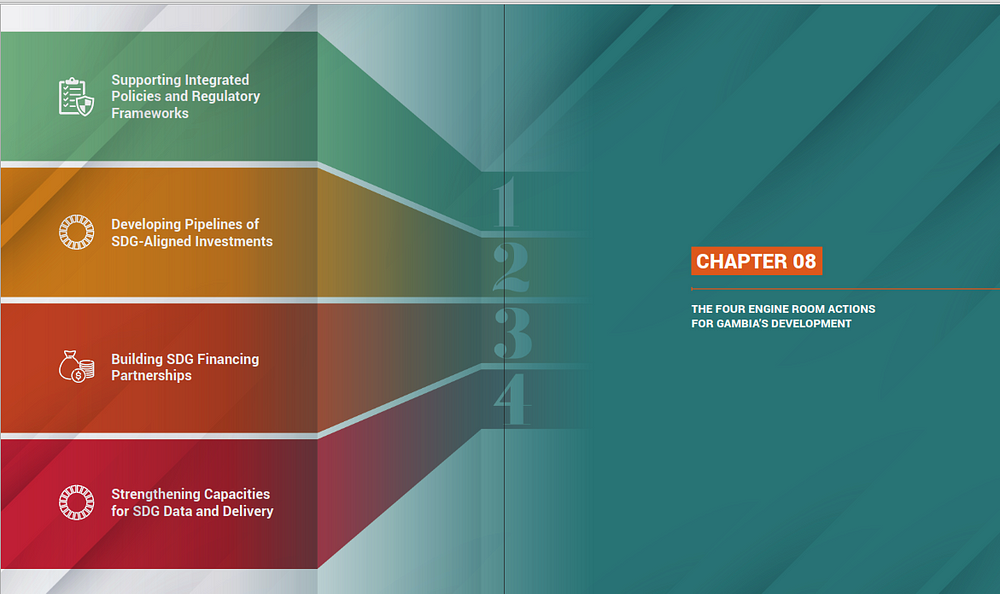
But there is hope. The United Nations (UN), in partnership with the government and other stakeholders, is working to transform The Gambia’s food system through an integrated approach centred around four key “engine room actions.” These actions aim to create an enabling environment for smallholder farmers like Fatou to thrive while also nourishing people and the planet.
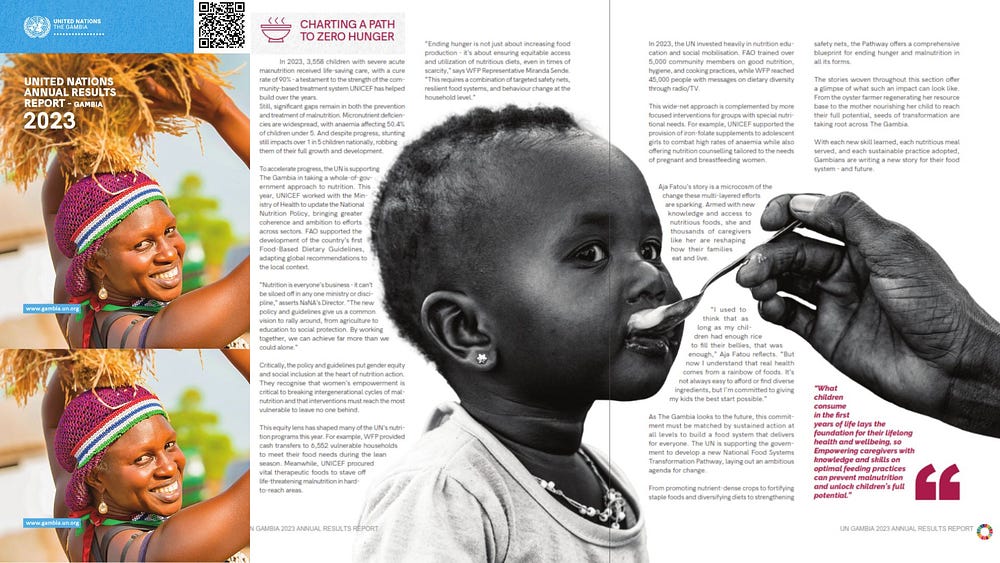
The first engine room action is providing integrated policy advice. In 2023, the UN Food and Agriculture Organization (FAO) supported the development of The Gambia’s first Food-Based Dietary Guidelines. These guidelines provide comprehensive guidance on the nutritional value of different crops and how to diversify production for improved diets. For Fatou, this means access to information that can help her make informed decisions about what to grow and how to feed her family a balanced diet.
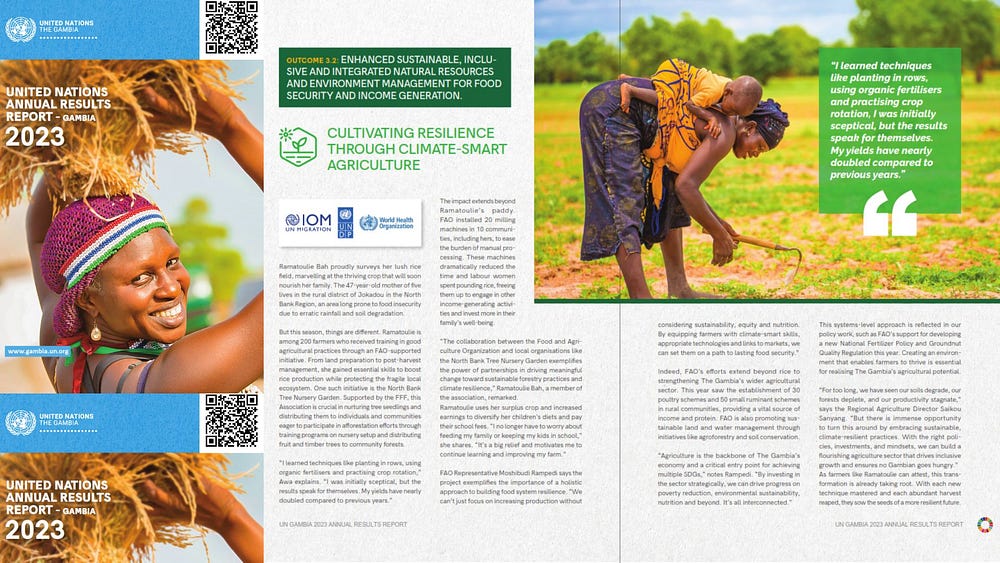
The second engine room action is developing pipelines of bankable projects. In 2023, FAO, UNCDF, and UNDP trained over 200 farmers in The Gambia on climate-smart rice cultivation techniques, such as using organic fertilisers and planting drought-resistant varieties. By applying these practices, farmers like Fatou can improve their soil quality, increase yields, and build resilience to climate shocks, all while conserving natural resources.
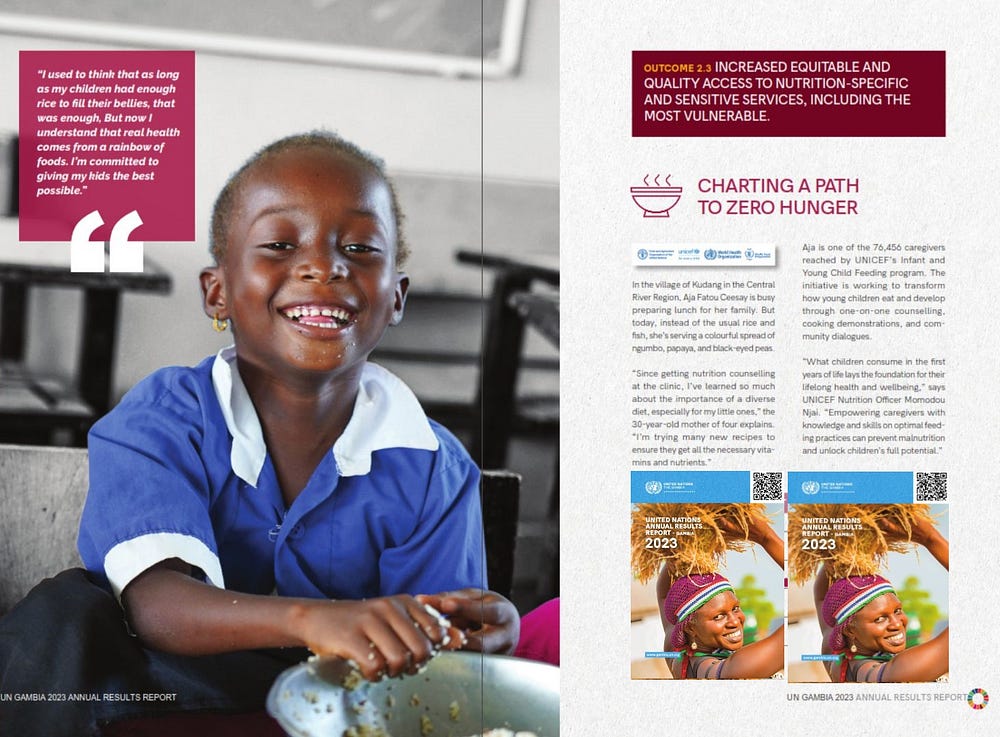
The third engine room action is convening multi-stakeholder partnerships. WFP has been linking smallholder farmers to school feeding programs, creating a reliable market for their produce at fair prices. For Fatou, this means a predictable income stream that allows her to invest in quality inputs, plan for the future and improve her family’s standard of living.
The fourth engine room action is strengthening institutional capacities. FAO, WFP and UNDP have supported the Ministry of Agriculture and the Gambia Bureau of Statistics (GBoS) in enhancing their data collection, analysis, and policy-making capacity. This helps ensure that the needs and challenges of smallholder farmers like Fatou are considered in the design and implementation of agricultural policies and programs.
Together, these four engine room actions are starting to transform the lives of smallholder farmers like Fatou. By providing integrated guidance, promoting sustainable practices, connecting farmers to markets, and strengthening institutions, the UN is helping to create a food system that works for everyone.
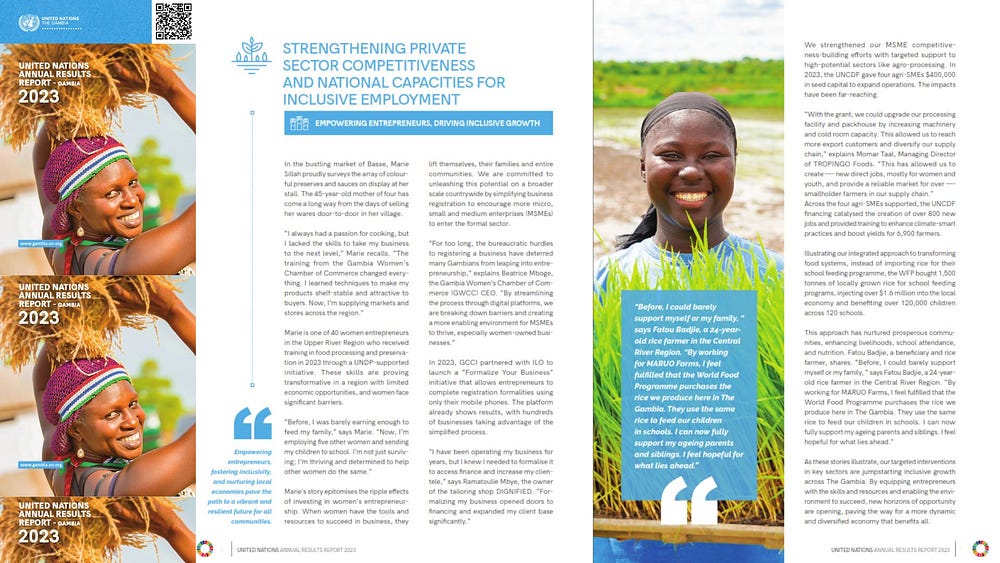
This integrated approach offers Fatou a pathway to a more resilient and prosperous future. With access to nutritional knowledge, climate-smart practices, reliable markets, and responsive policies, she is better equipped to overcome her challenges, improve her yields and income, and contribute to her community’s food security and well-being.
Of course, transforming food systems is a complex and long-term endeavour, and much work remains to be done. But as Fatou and her fellow farmers are starting to experience, change is possible when we break down silos, bridge divides, and work together towards a common vision.
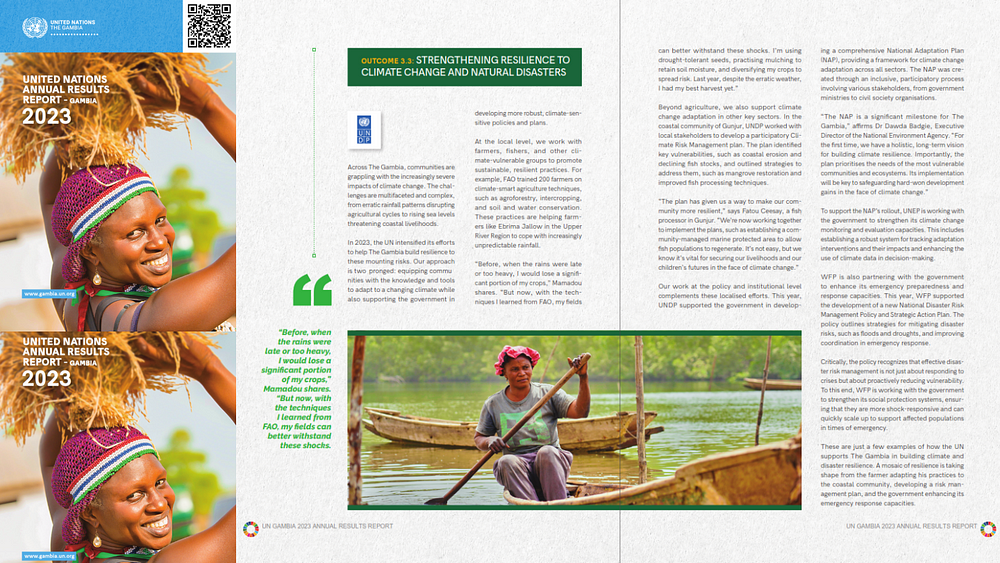
Our four engine room actions offer a promising template for this kind of integrated, multi-stakeholder approach. By creating an enabling environment for sustainable food production, the actions are helping to unlock the potential of smallholder farmers, who are the backbone of The Gambia’s agriculture sector and the guardians of its natural resources.
Let’s draw inspiration from the progress in The Gambia and support smallholder farmers to create a more sustainable, equitable, and resilient world.
